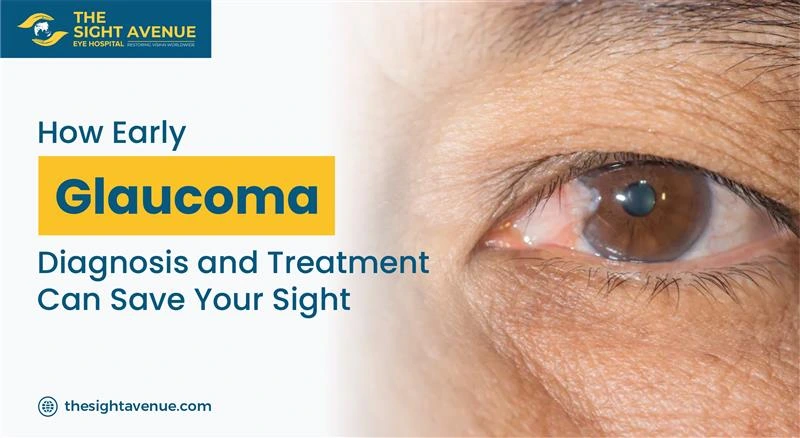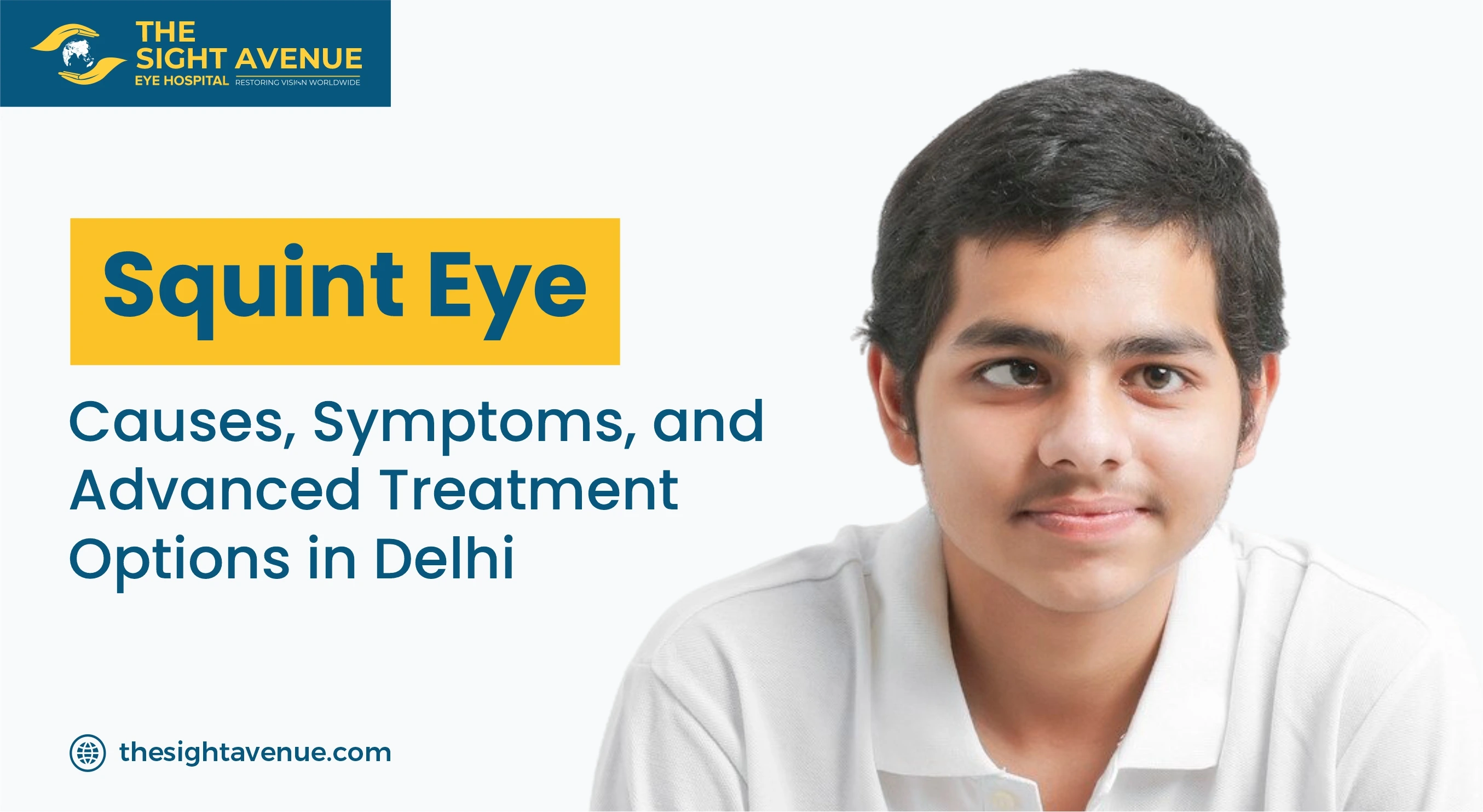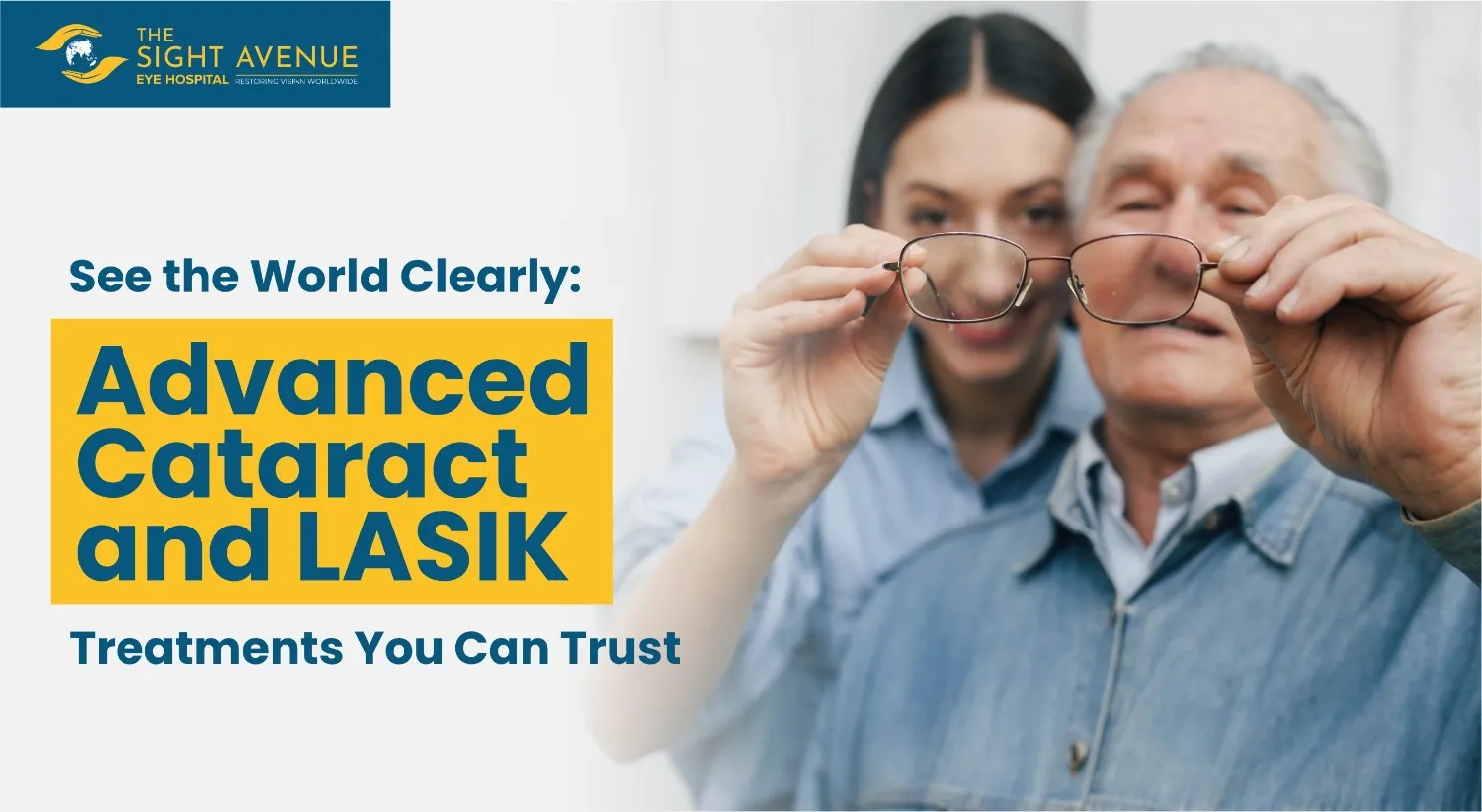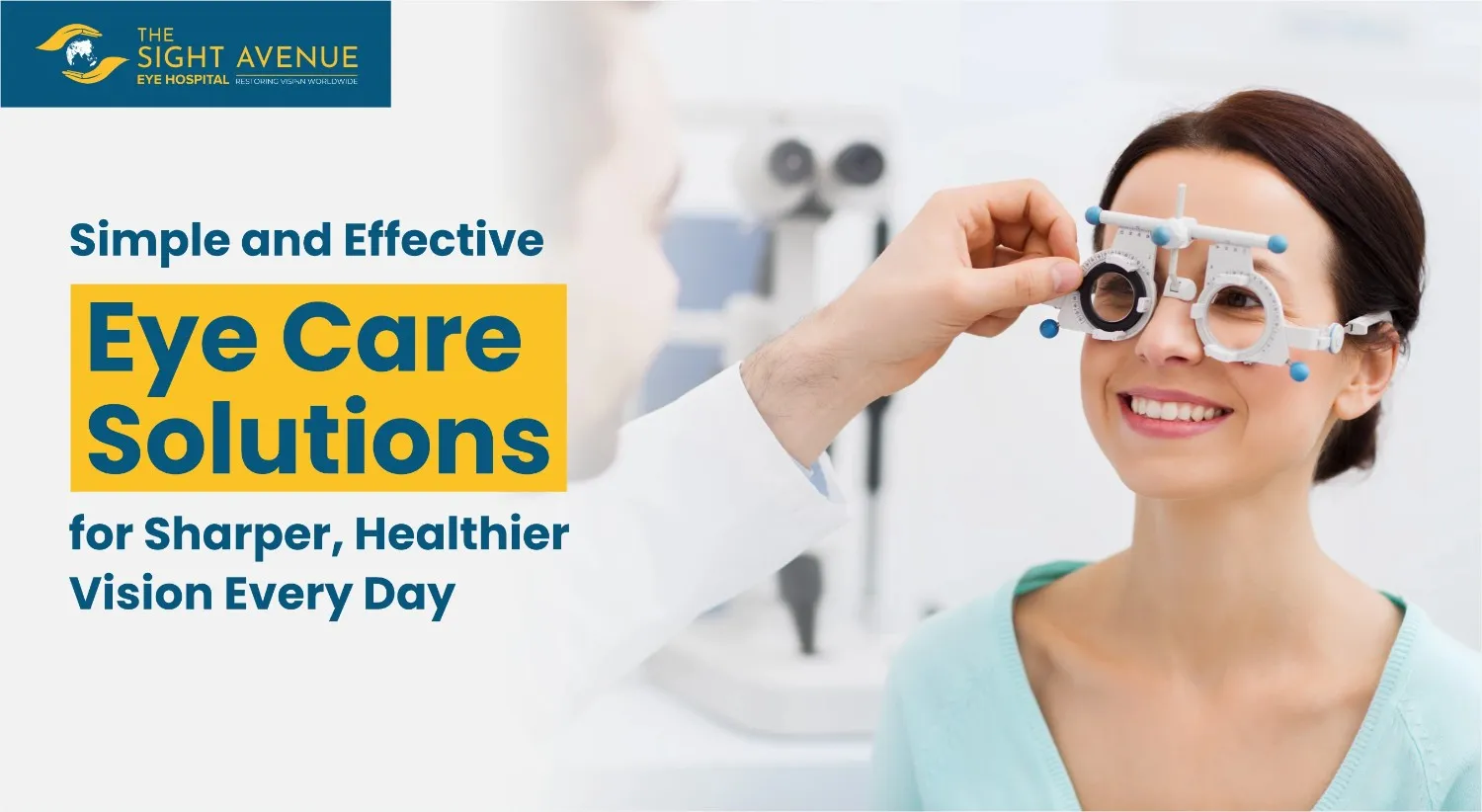Hyperopia (Farsightedness) Symptoms, Causes & Treatment

Are you having trouble seeing nearby objects? These might be clear symptoms of farsightedness or hyperopia. Actually, when people face this condition, they can see distant objects clearly but struggle to see nearby items, that causes eye strain and discomfort
This blog helps you provide necessary information on hyperopia symptoms, causes, and treatment options.
What is Hyperopia?
Hyperopia is an eye disease that usually happens when light entering the eye focuses behind the retina instead of directly refracting on it. This happens due to the eyeball being shorter than normal or the cornea having an inadequate curvature. While it is a common condition, its severity can differ from person to person.
Symptoms of Hyperopia
The symptoms of hyperopia can differ based on its degree. Below are some common signs that might help you detect hyperopia:
1. Blurred Vision for Close Objects
- Difficulty focusing on books, smartphones, or other nearby objects.
2. Eye Strain and Fatigue
- Prolonged reading or screen time can cause tiredness and discomfort.
3. Headaches
- Frequent headaches, especially after tasks requiring near vision, are common.
4. Squinting
- A tendency to squint when focusing on close objects.
5. Difficulty in Reading
- Words may appear blurry or require more effort to focus on.
If these symptoms persist, an eye examination is necessary to confirm the diagnosis and explore treatment options.
Know More: How To Remove Spectacles
Causes of Hyperopia
Hyperopia occurs due to structural irregularities in the eye. Here are some key causes:
1. Shorter Eyeball
- A shorter eyeball prevents light from focusing correctly on the retina.
2. Flat Cornea:
- An insufficiently curved cornea cannot bend light adequately, leading to farsightedness.
3. Age
- Natural changes in the eye’s lens with age can contribute to hyperopia, often overlapping with presbyopia.
4. Genetic Factors:
- Understanding the common causes is very important for effective treatment.
Diagnosis of Hyperopia
Diagnosing hyperopia requires a comprehensive eye exam. Some common diagnostic tests include:

1. Visual Acuity Test
- Measures your vision accuracy and looks at various distances using a standardized eye chart.
2. Refraction Test
- Determines the correct prescription for glasses or contact lenses by evaluating how light focuses in your eye.
3. Retinoscopy
- A simple test where the doctor shines light into the eye to observe how it reflects off the retina.
4. Autorefractor Test
- Uses advanced technology to automatically measure the eye’s refractive error.
These tests are quick and painless, ensuring an accurate diagnosis.
Know More: Myopia or (Nearsightedness)
Treatment Options for Hyperopia
Hyperopia is manageable with several effective treatment options. The right choice depends on how chronic your eye condition is and individual preferences.
1. Prescription Glasses
- The simplest and most common solution, convex lenses in glasses help redirect light onto the retina for clearer vision.
2. Contact Lenses
- Soft or rigid gas-permeable lenses are a discreet alternative to glasses.
3. Refractive Surgery
- Procedures like LASIK or PRK reshape the cornea for permanent correction.
- Ideal for those seeking a long-term solution to hyperopia.
4. Lens Implants
- In severe cases, artificial lens implants may be an option to correct vision.
5. Vision Therapy
- Customized exercises to strengthen eye muscles and improve focus in children and young adults.
Related Blog: Which Is Better Lens Or Lasik Eye Surgery?
Lifestyle Tips for Managing Hyperopia
In addition to treatment, adopting healthy habits can help reduce the strain caused by hyperopia:

1. Take Frequent Breaks
- Follow the 20-20-20 rule: Try to look at something 20 feet far away for 20 seconds every 20 minutes.
2. Use Proper Lighting
- Ensure you are using proper lighting when reading or working on close-up tasks.
3. Adjust Screen Time
- Limit prolonged use of digital devices and use blue light filters when possible.
4. Annual Eye Check-Ups
- Regular eye exams help monitor and manage changes in your vision.
5. Eat a Healthy Diet
- Include eye-friendly nutrients like vitamin A, omega-3 fatty acids, and lutein in your meals.
Related Blog: Helpful Exercises to Enhance Your Eye Vision
Hyperopia in Children
Hyperopia is common in children and often corrects itself as their eyes grow. However, severe hyperopia can interfere with their learning and development. Parents should watch for signs like:
- Difficulty concentrating on schoolwork.
- Complaints of eye pain or headaches.
- Holding objects farther away to see them clearly.
Early detection and corrective measures, such as glasses, can help children perform better academically and socially.
Why Timely Diagnosis is Key
Untreated hyperopia can lead to complications such as amblyopia (lazy eye) or strabismus (crossed eyes) in children. For adults, it can cause chronic eye strain and headaches, significantly impacting the quality of life. Regular eye checkups are really important for early detection and management.
Know More: Squint Eye Exercises
Conclusion
Hyperopia, though common, can affect daily activities and overall well-being. Recognizing its symptoms and understanding the causes can empower you to take the necessary steps toward better vision. Whether it’s glasses, contact lenses, or advanced surgical options, hyperopia is highly manageable.
Take charge of your eye health today by scheduling a comprehensive eye exam at The Sight Avenue Hospital (the best eye hospital in Gurgaon). Remember, clear vision is not just about seeing better—it’s about living better.
Recent Blogs
Eye problems? Searching for an eye specialist near me in Delhi NCR? The Sight Avenue has 5 eye clinics in Delhi NCR. Contact us today!
Eye Hospital in Delhi
- The Sight Avenue
- The Sight Avenue
- The Sight Avenue
E-82-A, Ground Floor, Hansraj Gupta Rd, Greater Kailash I, New Delhi, Delhi 110048
Email:enquiry@thesightavenue.com
Tel : 011-4666 0666
Mob : +91-8883330799
Fortis Hospital, Escorts Okhla, New Delhi
Fortis Hospital, Vasant Kunj, New Delhi
Recent Post





